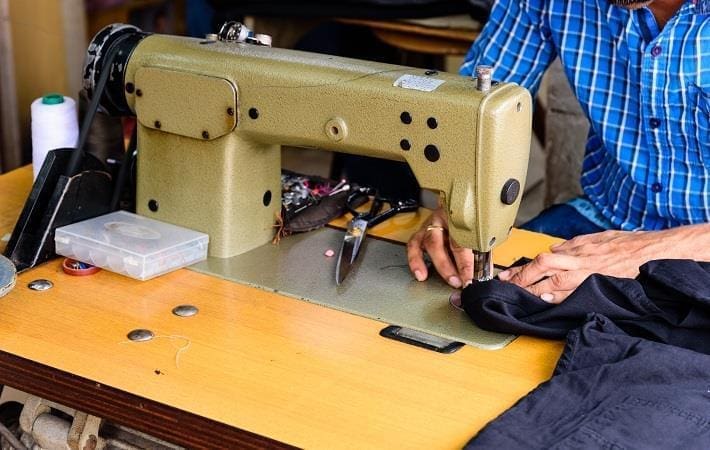To help Prime Minister NarendraModi’s vision of making India a $5 trillion economy by 2024, the Indian Texpreneurs Federation (ITF), Coimbatore, has submitted a 11-point appeal and suggestions to the ministry of textiles. The suggestions are based on an online survey carried out by ITF, in which 320 out of 563 ITF-member textileentrepreneurs participated. The textile-apparel manufacturing cost has increased and hence manufacturers are not able to compete with low cost destinations in low value products, according to the findings of the survey.
The major market focus of India’s textile industry is only to 3-4 countries/zones, where the exporters are not able to compete in prices with countries like Bangladesh. Thirdly, the domestic textile industry is not catching up in terms of manufacturing efficiency; and there is also worker shortage, the survey said. In addition, expensive MMF raw materials makes it difficult to compete with Vietnam and China. Also, the bulk of Indian apparel are cotton-based and there is not much presence in blended apparel, which are currently in demand. Some entrepreneurs in the survey mentioned that higher cost of capital is making them less competitive. Based on the findings of the survey, ITF has urged the Union government, firstly, to consider forming a task force with industry stakeholders particularly with representation of strong regional manufacturing associations in order to identify the short term and long term solutions to trigger the growth of exports.
“In the case of Tamil Nadu, there are certain unique exporting mega clusters like Coimbatore, Tiruppur, Karur and Erode. One Joint Secretary cadre officer from the Union textiles ministry should visit periodically and form a separate task force in this region to facilitate the growth opportunities and also support the industry to resolve the challenges,” the ITF letter to textiles minister Smriti Irani said. “Bring Fibre Neutral Policy at single and lower GST tax rate for all the raw materials in textile sector to allow Indian textile industry to have a level playing field with competing countries. This will help to shift our focus towards more value-added blended products which leads in high demand across the globe,” the letter, a copy of which was marked to commerce minister PiyushGoyal, said.
Fourthly, the ITF has urged setting up of Cotton Technology Mission to achieve 1,000 kg per hectare in the next few years from the present level of 500 kg per hectare, as most of the cotton growing countries have crossed 1,000 kg per hectare. “This will help Indian textile industry with abundant raw material and also help farmers to double their income. This will help in cutting down the volatility of cotton prices that we are currently facing at its highest level.” Fifth, there should be a special scheme to promote large scale apparel manufacturing. Sixth, handhold the small and medium textile exporters to reach new and potential markets by appointing special ‘trade officer’ for textiles in the embassies of those countries. Seventh, brand the sustainability factor of Indian textile industry to use the growing importance of sustainable textiles in world markets. For example, Tamil Nadu textile sector is the best example with zero-liquid discharge (ZLD) in processing sector and more than 50 per cent of the energy consumed is from green energy sources like wind and solar. The concept of green process and green factories need to be initiated across India. Eighth, the Indian government should speed up signing of free trade agreement (FTA) with Eurasia and other countries. Ninth, India should better engage with the US to gain better market share in US textiles and apparel. In other words, India should take advantage of US-China trade war as currently India’s annual textile and apparel exports to the US stand at $7.672 billion compared to China’s $40.51 billion.
Tenth, the government should resolve the inverted duty structure issue with processing sector in GST. And finally, until all the mentioned challenges are resolved, “the Government should support the sector by way of export incentives to sustain the current volume of business,” ITF convenorPrabhuDhamodharan said.

